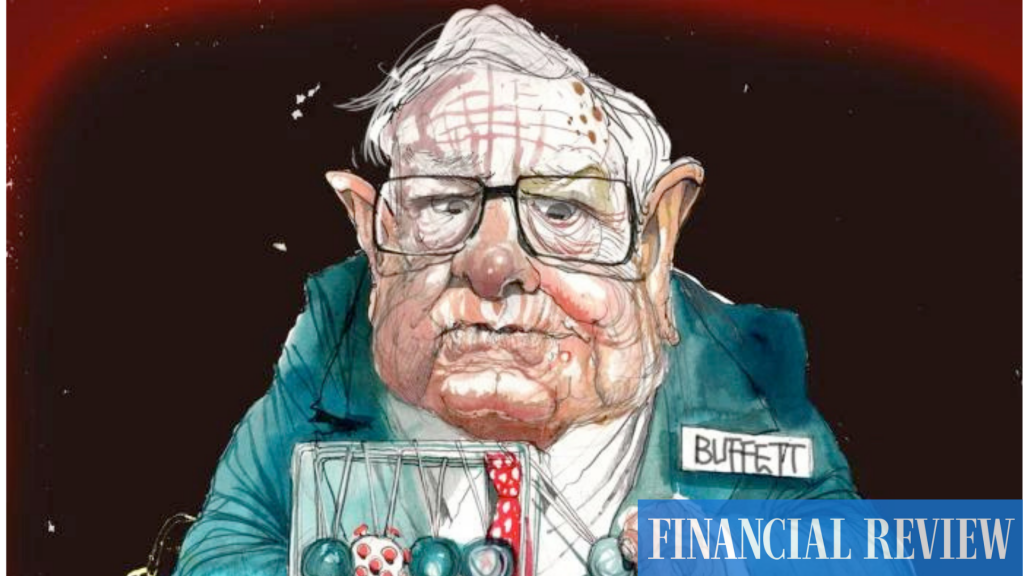Buffett enjoys a good win but Aussie LIC shows better timing

ASX-listed LIC Pengana Private Equity Trust is grabbing small slices of some of the hottest tech companies in the world, before they go public.
The float of Brazilian fintech giant Nubank is about to crystallise an impressive and rapid gain for Warren Buffett’s Berkshire Hathaway.
It was only in June that Berkshire invested $US500 million ($702 million) in a series G funding round that valued the digital bank at $US30 billion ($42 billion).
On Wednesday night, Nubank priced its IPO on the New York Stock Exchange and the Sao Paulo bourse at a valuation of $US41 billion ($52 billion).
Berkshire Hathaway reportedly bought another $US260 million of stock.
Berkshire’s gain is sweet.
But investors in the ASX-listed Pengana Private Equity Trust (or PE1 by its ticker) are sitting on even bigger profits.
The listed investment company (LIC) bought into Nubank in June 2020, when Nubank reportedly raised about $US300 million to ensure it had sufficient capital to withstand the COVID-19 pandemic.
The company’s previous capital raising was conducted at a valuation of $US10 billion ($14 billion).
Pengana chief executive Russel Pillemer laughs when Chanticleer suggests that the timing of its investment makes the LIC smarter than the Oracle of Omaha.
But the Nubank IPO is a neat example of the sorts of opportunities Pillemer was hoping to offer retail investors when he listed PE1 in April 2019.
Pillemer’s theory was that small investors hoping to get access to the hottest tech companies before their IPOs were likely to be disappointed.
Unless you were an institutional private equity investor, a venture capital firm or a big family office – Nubank’s big investors include Tiger Global, Tencent and Founders Fund – you could only watch and wait for a chance to invest in what Pillemer calls “the good stuff”.
“It’s a pretty small universe of people that were able to get the right access,” he says.
But Pillemer could see that demand, particularly among Australian financial advisers wishing to diversify, was strong. So, the former Goldman Sachs banker reached deep into his contact book with an idea.
Back in 2000, Pillemer was working for Goldies, an investment banker in the funds management sector when he worked on a management buyout with Michael Sacks, the chairman of a private equity and alternative asset management firm, Grosvenor Capital Management.
Sacks and Pillemer remained friends, and so it was to Grosvenor that Pillemer took his idea of an LIC focused on private equity.
“I showed it to Grosvenor and they were like, ‘this is brilliant’,” Pillemer recalls.
Part of the attraction for the US giant, which manages $US70 billion on behalf of institutional clients, was the chance to get some exposure to Australia.
Test case
But it was also attracted by the fact that decades-old US regulations prevented the creation of listed vehicles that invested in private equity. As such, the Australian market has provided something of a test case for Grosvenor, which is the manager of PE1.
Deploying capital in the private equity market obviously takes longer than in public equity markets, and Pillemer says PE1 is starting to flourish now that 80 per cent of its capital is invested.
Minor wrinkles to prepare for
In the 2020-21 financial year, the fund returned 19.1 per cent, with about 50 per cent of its cash deployed. It returned 9.3 per cent in November, according to numbers out on Thursday and shares in the LIC have climbed 42 per cent since April to trade at $1.54, well above its most recent net asset valuation of $1.42. Pillemer says this premium reflects the big gains that are coming as some of its key holdings prepare to float.
There are some wrinkles with PE1 that LIC investors do not typically deal with.
One is that monthly updates can be somewhat meaningless, as private companies tend to provide investors with a valuation every quarter, and these are typically only reset when a capital raising round takes place. This means there is a lag before the gains from some of PE1’s investments can be recognised.
The other issue is that the fees PE1 pays for the management of the LIC are higher than in other LICs – the private equity industry’s traditional two-and-20 fee model (2 per cent management fee, 20 per cent performance fee) also extends to PE1, although Pillemer says co-investments (where Grosvenor is brought into a deal by another PE firm or investor) tend to come with lower fees, often more like 1-and-10.
The PE1 portfolio contains little slices of some of the biggest names in tech, including Elon Musk’s SpaceX, payments group Stripe and TransferWise.
It is also an investor in electric SUV maker Rivian, which listed in November and rocketed to a $US100 billion valuation shortly after, despite having no revenue.
PE1 sold half its stake in the float and will sell the rest when a period of escrow is over; Pillemer says its policy is to sell as quickly as is practical after an IPO.
He doesn’t hesitate to name his favourite investment in the portfolio: Instacart. The business, founded by former Amazon employee Apoorva Mehta, allows consumers to order groceries online for delivery or pick-up.
Nubank customers surge
It first appeared in PE1’s monthly update in June 2019, when it was valued about $US8 billion.
In March this year, a funding round valued it at $US39 billion and a float – recently postponed until next year – is likely to value it about $US50 million.
Rising inflation and the threat of higher interest rates have hit tech valuations hard in recent months and Nubank’s float was scaled back as a result of the volatility – from between $US10 and $US11 a share to between $US8 and $US9 a share.
Pillemer isn’t fazed, pointing out that “as long as rates don’t go up in any crazy fashion, then rising rates are a sign of a healthy economy. I don’t think we should be too afraid of things getting back to normal.”
But more than this, he sees PE1 as investing in ideas that are much bigger than the trajectory of rates, and Nubank is a good example.
The company, which is now the most valuable digital bank in the world, has about 48 million customers, mainly across Brazil, Mexico and Columbia. Its zero-fee credit cards, savings accounts, personal loans, investment, and insurance products are largely targeted at the vast numbers of consumers in South America who don’t have bank accounts.
It is adding a staggering 2 million customers a month, and with a population of 650 million to aim at across the continent, it’s no wonder growth has been prioritised over profitability.
“From our perspective, it does not make sense to make investments based upon predictions that rates will be higher or lower, Pillemer says. “If you get the right company with the right prospects, it will do well in all environments.”
The scaling back of Nubank’s float, Pillemer says, is not a huge worry – the big gains in private equity are typically made in the few years before the IPO, as was the case with the Brazilian giant.
If there’s one difficult aspect of investing in private equity, it’s that the ride eventually comes to an end with an IPO. “One of the most fascinating things about private equity is that you hate the exits,” Pillemer admits.
The benefit of Grosvenor’s management is that it can quickly put cash realised in an exit back to work.
“Grosvenor has such an abundance of deal flow, that they can actually do that for us,” Pillemer says.


